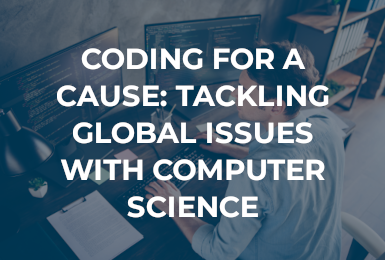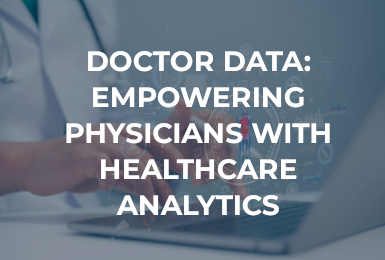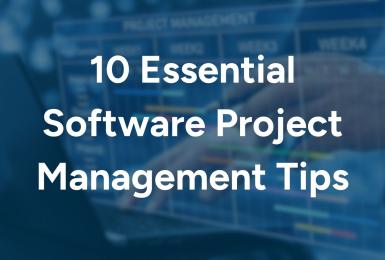Why Choose Health Information Management as a Career?
Health information management professionals work at the intersection of healthcare, technology, and business. While electronic medical record (EMR) systems are no longer novel, the way we collect, use, store, access, share, and protect data continues to evolve. New technologies, best practices, and regulations are creating new fields and specializations within the healthcare industry.
What is Health Information Management?
According to The American Health Information Management Association (AHIMA), health information management (HIM) refers to “...the practice of acquiring, analyzing, and protecting digital and traditional medical information vital to providing quality patient care.” Typically, this information is stored in a health information system and might include, for example, a personal health record. Each personal health record (PHR) contains information such as family medical history, medications, allergies, lab results, and previous diagnoses.
What Careers are Available in HIM?
Careers in health information management are in high demand. Positions range from entry-level such as medical records technicians and claims specialists to executive roles, like director of risk management and chief information officer. Additionally, HIM positions can be found in technology companies, regulatory agencies, research organizations, consulting firms, educational institutions, and more.
The AHIMA’s robust healthcare information management career map highlights current and emerging positions within this evolving field. This interactive map is divided into four overarching areas:
- Coding and revenue cycle
- Information governance
- Informatics
- Data analytics
Within each area is a range of positions requiring specific knowledge and a unique set of skills. If you’re interested in healthcare information technology (IT), specifically the behind-the-scenes of information systems, a career as a data architect, system analyst, health record implementation manager, or project manager might interest you. If you're drawn to the data side of things, you might opt for a position such as an informatics researcher, population health analyst, or data quality manager.
With the increased creation and collection of data and the use of Internet of Things (IoT) healthcare wearables, it’s no wonder information governance is one of the areas within HIM with the most potential. That’s why positions like health information systems manager, compliance officer, regulatory analyst, risk management specialist, and governance program director are prominent in the healthcare industry.
Whether you’re an IT professional looking to transition into healthcare, are currently working in a completely different field, are currently in healthcare and want to move into HIM, or you’re already working in HIM and want to advance your career, you’ll find plenty of opportunities to do so. Often, additional experience and education are required.
Demand & Salary: Health Information Management Career Outlook
Employment and economic experts are lauding careers in healthcare and technology as some of the best to pursue, including those that closely relate to health information systems and management. U.S. News and World Report ranked medical and health services manager #4 on its 100 Best Jobs report for 2020.
Health information management is an evolving field with an array of job titles, so U.S. Department of Labor Bureau of Labor (BLS) salary and outlook data won’t match up exactly with the range of specific positions available today. However, we can look to the BLS for a general idea about demand and salary potential for health information administrators, information systems managers, and related occupations:
- Medical and health services managers are expected to grow in demand by 32% through 2030, which is much faster than the average growth for all occupations. The median salary for medical and health services managers in 2021 was $104,280.
- Computer and information systems manager positions are expected to increase in demand by 11% through 2030. The median annual wage for computer and information systems managers in 2021 was $151,150.
- Computer and information research scientists are estimated to grow in demand by 22% through 2030, much faster than the average for all occupations. The median annual salary for this role in May 2020 was $126,830.
- Top executives in the healthcare industry saw a median annual salary in May 2020 of $160,950.
Is a Master’s in Health Information Management Worth It?
While many careers in health information management require a minimum of a bachelor’s degree, highly technical and senior/executive-level positions require an advanced degree.
In fact, AHIMA’s career map also organizes career options by education level. In the master’s-level area, you’ll find positions such as:
- Vice president of privacy and security
- Vice president of data management
- Chief compliance officer
- Health information systems management director
- Information governance program director
- Health information systems management director
- Director of health information exchange
Additionally, a pre-pandemic survey conducted by AHIMA showed professionals in the field with either an advanced degree or industry certifications (or both) are successful and, often, out-earn their counterparts. In fact, the survey, which had 3,000 respondents, asked what “skillsets/elements participants believed have the greatest influence on promotion.” They could choose up to three options, and the top three were: 59% - experience level 40% - education level 31% - certification level When positioning yourself for a health information management career, you should consider a master’s in information technology (MS IT). The hard skills you learn in an advanced degree program like this - programming and scripting, database design, software development, and project management, to name a few - are absolutely transferable to many industries. Champlain College Online’s MS IT offers a specialized focus area in healthcare IS management, as well as business management, data science, and digital forensics.
If an emphasis on IT is not necessary for your career, you might also wish to look at Champlain’s online master’s in healthcare administration.
Related Programs
You May Also Like
Request Information
Connect with our admissions team to learn more about Champlain College Online.

Request Information
I acknowledge that, by clicking the "submit" button, I am giving my express written consent to Champlain College and its representatives to contact me about educational opportunities via email, text, or phone, at the phone number above, including my mobile phone, using an automatic dialer, or pre-recorded message. Message and data rates may apply. I understand that my consent is not a requirement for enrollment, and I may withdraw my consent at any time.






